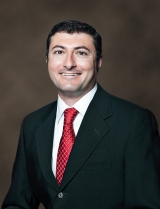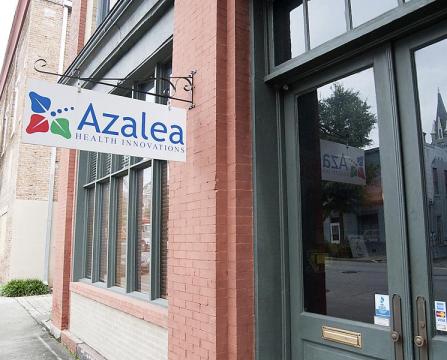Seven years ago, Baha Zeidan and two of his Valdosta colleagues entered a local competition for business plans, looking to build on their idea for a health care software startup.
At the time, the three young men, all graduates of Valdosta State University, were working at a medical lab company in the South Georgia city.
The group saw a need for better software for the health care industry, which still was bogged down with paper medical records.
The Valdosta-Lowndes County Chamber of Commerce awarded Zeidan, Douglas Swords and Daniel Henry the first prize of $15,000 for their business plan. The contest award also came with legal and other services.
“That was the start of the company,’’ Zeidan said Wednesday.
Azalea Health, launched in 2008 in Valdosta, “the Azalea City,” focused on providing electronic health records and billing software for physicians, along with software for laboratories.
On Tuesday, seven years after the contest award, the company announced a merger with Alpharetta-based simplifyMD, another private health IT firm. The merged company will have 70 employees and will have offices in Valdosta, Alpharetta and Macon as well as in Gainesville, Fla.
The companies did not disclose their combined revenues. Zeiden will be CEO of the combined company, which will be known as Azalea Health.
Their product line – featuring software for electronic health records and billing services for physicians – lies in the sweet spot of the national push for more digitalization in medical care.
The merger underscores the importance of the health IT sector in Georgia, and its broad geographic reach within the state. (Alpharetta is in northern metro Atlanta, while Valdosta is just a few miles from the Florida line.)
According to the Metro Atlanta Chamber, there are more than 250 health IT companies in Georgia, supporting nearly 30,000 jobs.
Healthcare Informatics Magazine lists eight Georgia-based companies in its top 100 health IT companies in 2014, based on revenues from the previous year.
With the state’s abundance of health IT companies, “people can not only find talent, but can also look for partnerships,’’ said Tino Mantella, president and CEO of the Technology Association of Georgia.
In the merger between Azalea Health and SimplifyMD, “both bring something to the table,’’ Mantella added.
The heavy concentration of health IT companies has led to other spinoffs, and the cluster of companies has benefited from academic centers such as Georgia Tech, plus good airport access and a strong business climate, Mantella said.
Companies in the industry offer a range of products and services, from electronic health records, medical billing and revenue management to diagnostics, preserving the security of information exchanges, and consumer health information.
The use of electronic medical records has accelerated, in part because Medicare and Medicaid are paying incentives for hospitals and doctors to demonstrate “meaningful use” of these records to improve patient care.
As a startup, Azalea Health first marketed to doctors in the Valdosta area, Zeidan said in an interview Wednesday with GHN. Word of mouth helped sales growth, along with presentations at medical conferences, he said. Now the company has customers nationally.
The merger will bring additional customers and software tools to Azalea Health, he said.
“This is simply a great fit,” Zeidan said in a statement accompanying the merger announcement. “Both companies have considerable talent and experience in the health care technology industry and are dedicated to simplifying the life of physicians and administrators by providing a complete solution that is easy to implement and use.”
The current shift to having government programs and insurers pay hospitals and doctors based on their patients’ medical outcomes, rather than the number of procedures and services delivered, will be a target area for the merged entity, Zeidan told GHN.
“We want to be a trusted partner [for physicians] during this transition,’’ he said.


